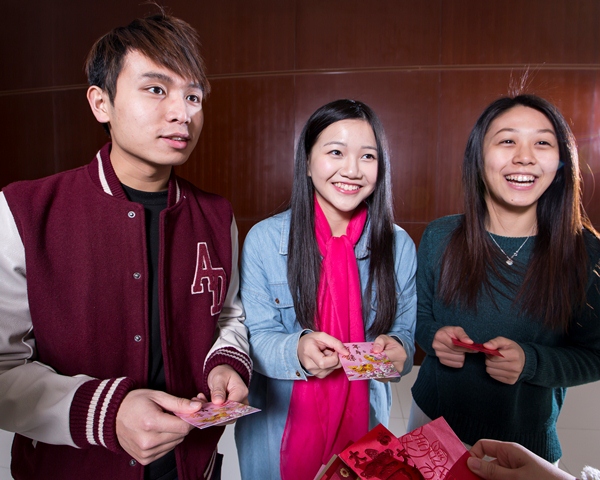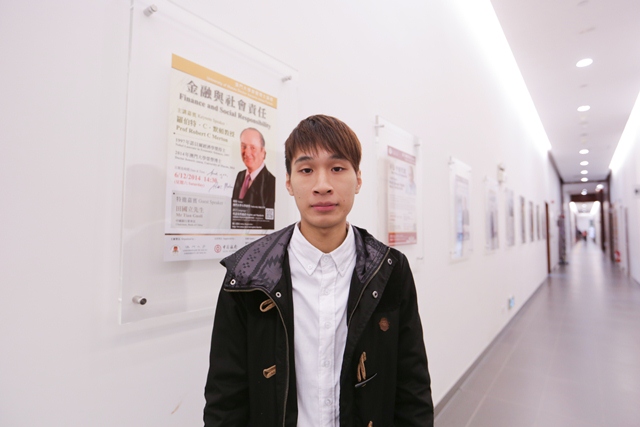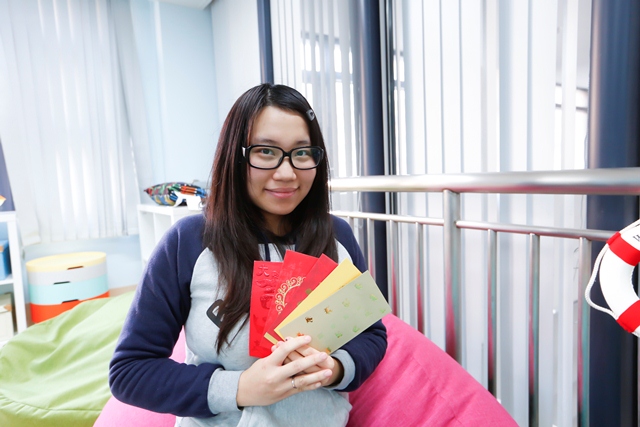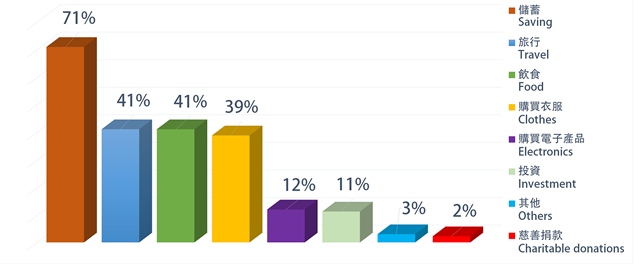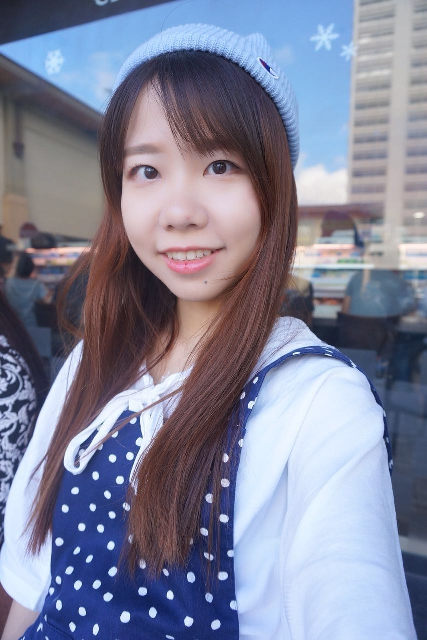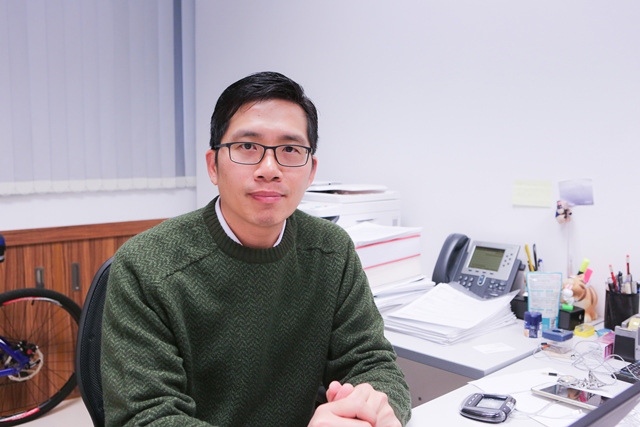How to Spend Lai See?
A majority of the students surveyed receive an average of MOP 1,000 to MOP 2,000 in lai see every year. Most say they save up the money. Some spend it on travel, food or clothes, while a few would invest it or donate it to a charity. The Faculty of Social Sciences has the highest percentage of students who choose to spend the money on travel and food, while the Faculty of Business Administration has the highest percentage of students opting for investment and donation. The survey also shows that the percentage of respondents who spend their lucky money on electronics is higher in male students than in female students.
Simon Leong, a second-year student from the Faculty of Business Administration and the champion of the Simulated Investment Competition for College Students in Macao 2015, says that the traditional meaning behind lai see is more important than the amount of money they contain. Leong receives an average of around MOP 500 in lai see every year, and he usually spends it on food and clothes. Although Leong probably knows more about investment than his peers, he likes to spend his lucky money and earnings on living expenses.
UM Members Love to Save Money
Alan Wong, a second-year student from the Faculty of Social Sciences, received a total of MOP 5,000 in lai see last year and expects to receive roughly the same amount this year. He plans to save up 70 per cent of the money and spend the rest on living expenses and gifts for children of his friends and relatives. Wong had an interesting experience with lai see. Once in middle school, he and several classmates finished their lunch in a restaurant only to find that they did not have enough money to pay the bill. Just when they were debating whether to dig a hole in the ground to hide themselves or to run away in humiliation and never come back, a teacher from their school came to the restaurant for lunch. The boys rushed to the teacher’s side, said their most sincere Kung Hei Fat Choi in chorus, and went back to their table with the newly acquired lai see to pay the bill. Now an adult, Wong says he does not ask for lai see anymore. ‘I feel bashful about asking for lai see now that I can earn money from my part-time job,’ he says. ‘Of course I’m still happy to receive lai see. But to me the red envelopes convey a message of good luck and it doesn’t matter how much money they contain.’
Rainie Lei, an administrative staff member at UM who got married recently, has to say goodbye to the days when she could receive lai see from others. She used to receive about MOP 1,000 in lai see every year and had the habit of saving it up. Now a newlywed, Lei has to join the ranks of lai see givers, and she expects to spend between MOP 1,000 and MOP 2,000 giving out lai see this year. ‘I would give lai see to children of my friends and relatives,’ she says. ‘I find the way the children say their New Year greetings adorable.’
Spending Money Wisely
In terms of personal finance, 82 per cent of the students surveyed have saving habits, but more than half of them do not have a monthly budget. Phyllis Gan, a second-year student from the Faculty of Social Sciences, spent all of her MOP 6,000 from last year’s lai see on living expense and a trip. Never a saver, she worries that she will only spend more money after graduation. So she plans to save up half of her lai see this year to kick-start the habit of saving money.
Advice from Financial Expert
According to Dr Henry Lei from the Faculty of Business Administration, young adults in Macao have many opportunities to earn money from part-times jobs. For this reason, most of them consider lai see as a windfall. He suggests that students should learn budgeting skills and live below their means. ‘Y oung people nowadays have little knowledge about personal finance and investment, so I hope we will be able to provide systematic education in this respect in the future,’ he says. Dr Lei also predicts that the total amount of lai see people receive will slowly decline due to the low birth rate in Macao.

